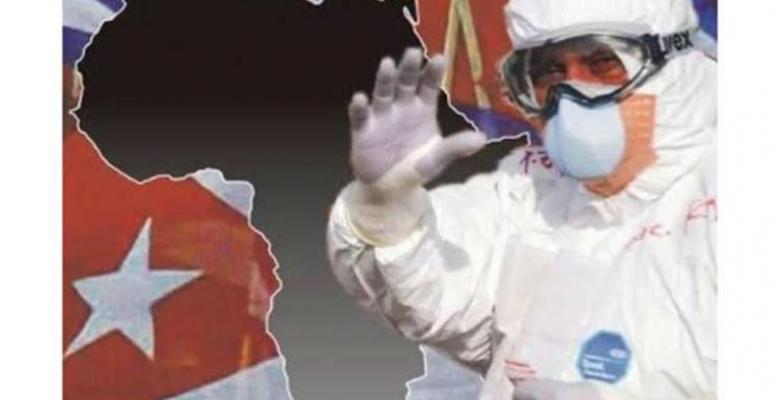Algeria: The Beginning of Cuba's Technical Assistance Abroad
especiales

Although Cuba's medical presence has been on all continents, in Africa, in 1963, took place what’s considered the beginning of Cuba's internationalist collaboration in health matters.
With the triumph of the Revolution in 1959 there was a huge exodus of doctors. By the end of that year, about 50% of the more than 6 thousand health professionals had emigrated. The great loss didn’t prevent, however, that in early 1960 a medical brigade was dispatched in an emergency to Chile after an intense earthquake. With this help to the Chilean people, one of the modalities of Cuba's collaboration in health matters began: The Emerging Medical Brigades.
In October 1962, following the visit to Cuba of Ahmed Ben Bella, Prime Minister of the newly independent Algeria, Fidel gave a speech at the inauguration of a medical school:
(…) There are four million more Algerians than Cubans and colonialism has left them many illnesses, but they have only a third - or even less - of the doctors we have. When it comes to health, the situation is truly tragic.
That’s why I told the students that we needed fifty doctors as volunteers to go to Algeria.
I’m sure there will be no shortage of volunteers ... Today we can send only fifty, but in eight or ten years, who knows how many, and we will be helping our brothers ... (Castro, 1962, s / p)
On May 23rd, 1963, the then Minister of Public Health, José Ramón Machado Ventura, marched to Algeria at the head of a team made up of 29 doctors, three dentists, 15 nurses and eight medium health technicians.
They totalled 45 men and 10 women who left voluntarily before the collaboration agreement was signed (Gleijeses, 2002).
With the arrival of this medical mission to Algeria on May 24th, Cuban technical assistance abroad had begun. It was an unusual gesture: an underdeveloped country offering free aid to another in an even more desperate situation. (Gleijeses, 2002, p. 62)
As Machado Ventura said, “it was like a beggar offering help, but we knew that the Algerian people needed it even more than we did, and that they deserved it” (as quoted in Gleijeses, 2002, p. 62).
They were assigned to the places according to the needs raised by the Algerian authorities and assigned to six cities. A stomatologist was located in Algiers; in Blida, six doctors, a stomatologist, three nurses, and three technicians; in Sidi-Bel-Abbés, 12 doctors, two stomatologists, five nurses, and three technicians; in Constantina, five doctors, four nurses, and a technician; in Sétif, three doctors, a technician, and a nurse; and in Biskra, two doctors, two nurses and a technician (…). (López, 2015, s / p.)
As can be seen, Cuba's medical collaboration has not been subordinated to its socioeconomic development, because despite the shortages on the first years of the Revolution, a nation in need was assisted. Nor was the aid determined by a material compensation. It should be noted that this mission turned out to be salaried by the Cuban government itself, not by the Algerian, and that, despite being a civil mission, it coincided with the breaking in Algeria of the Desert War with its neighboring country Morocco, which tried to take advantage of the inherent weakness of the emergence of a new state.
Since then, Cuba has contributed in all continents with concrete contributions in cooperation beyond its borders, both in care and teaching, and it has helped to develop national capacities through the training of human resources (Valera, 2019).
* This is an excerpt from the undergraduate thesis "More Cuban Doctors in Brazil", written by the author.
Translated by Amilkal Labañino / CubaSí Translation Staff













Add new comment